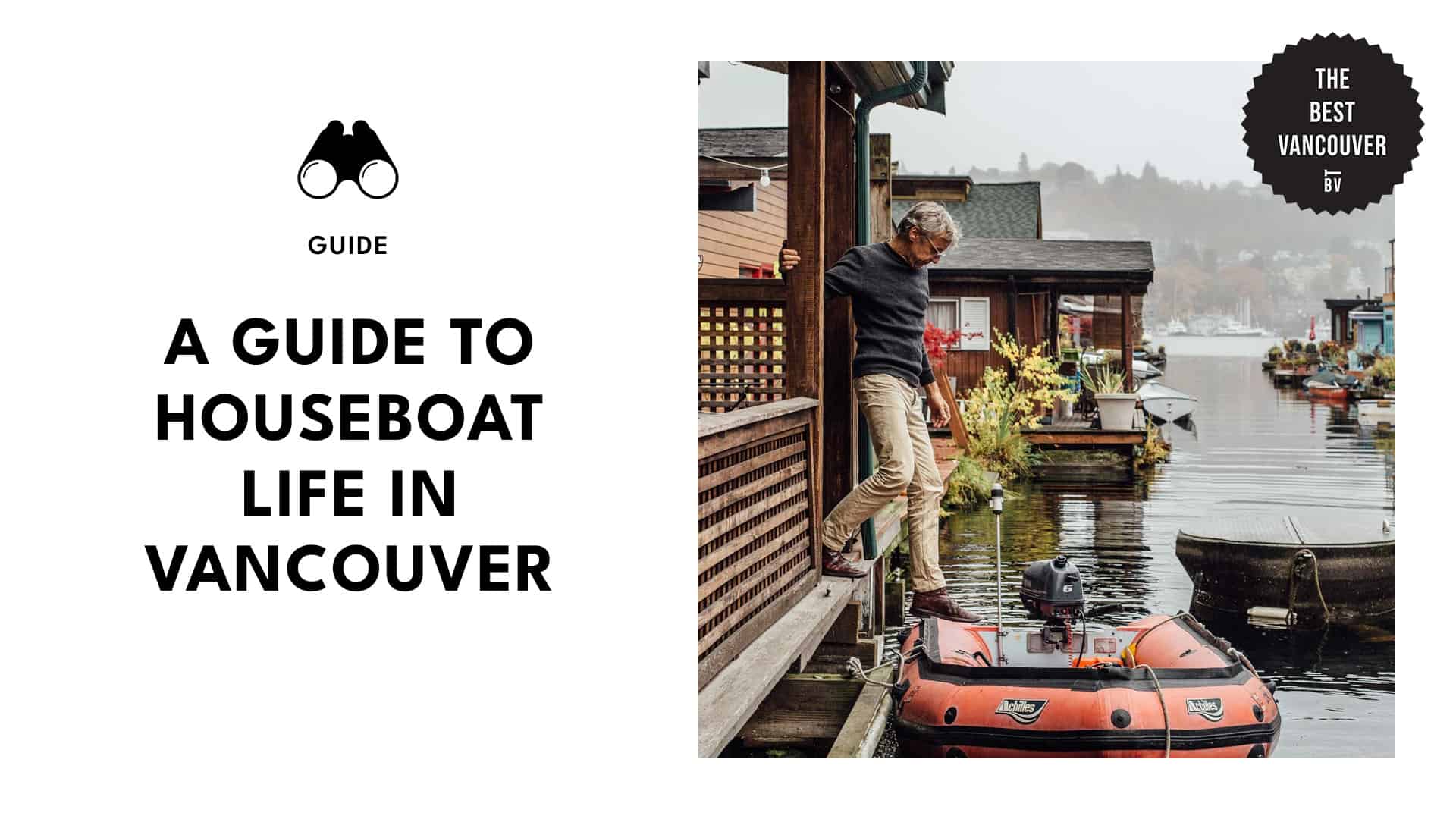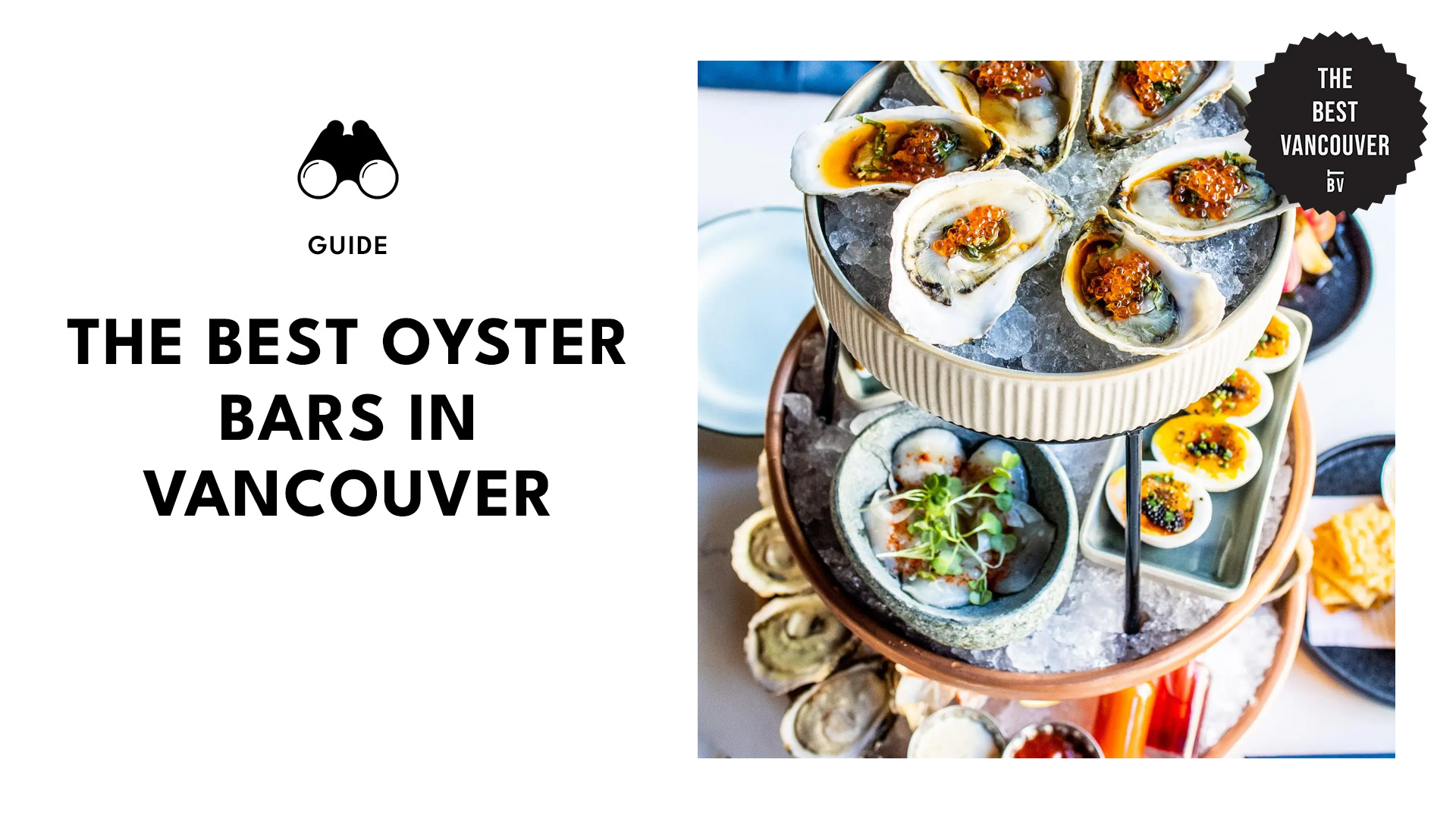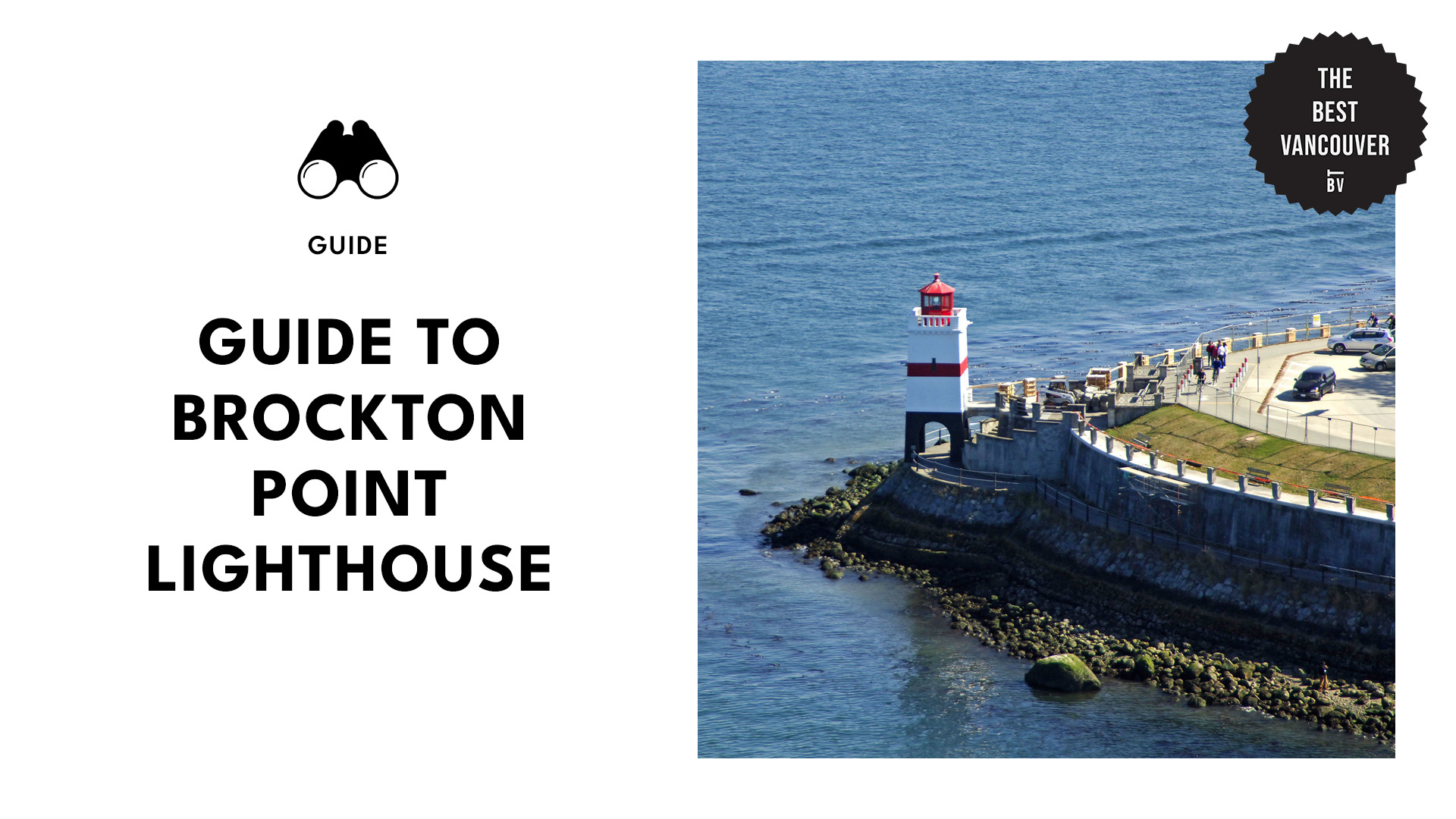Living in floating homes and houseboats in Vancouver offers a unique lifestyle with breathtaking waterfront views, a laid back pace, lots of community and, in some cases, the freedom to simply pick up and moor elsewhere.
Whether you’re drawn to the tranquility of watching sunsets on the horizon or seeking new horizons on your floating abode, living on the water is an invitation to experience life like never before. Read on to discover everything you need to know about making a home on the water in the city of Vancouver.
Are floating homes and houseboats the same?
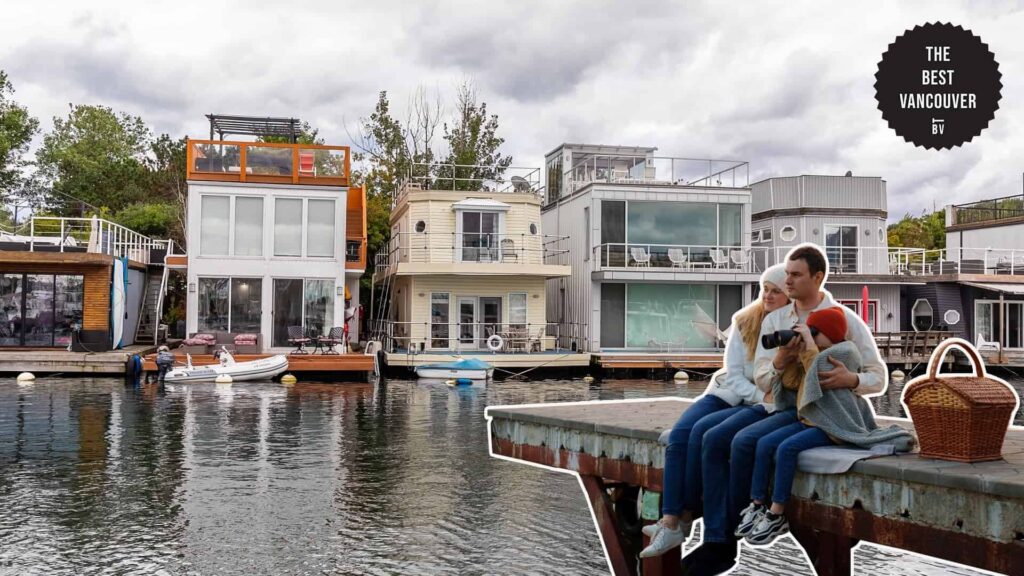
Floating homes and houseboats are often used interchangeably, but technically, they’re different when it comes to mobility. Both are unique living options on water, but they offer distinct features that cater to different lifestyles.
Floating homes are designed to resemble traditional houses, with foundations resting on floating platforms or pontoons. They’re more like permanent structures unless you want to tow them from place to place with a tugboat.
Because they’re more or less fixed in one spot, there’s a sense of stability that’s coupled with a great opportunity to reside in a waterfront living setting.
On the other hand, houseboats in Vancouver are basically boats turned into living spaces. Designed for mobility and navigation, they make not be ideal for sailing across the ocean, but they are equipped with engines for cruising around the waterways.
Can you live on a houseboat in Vancouver?
You can live on a houseboat in Vancouver as long as it is moored legally in one of the two designated marinas in False Creek, Heather Civic Marina and Spruce Harbor Marina.
Spruce Harbour Marina
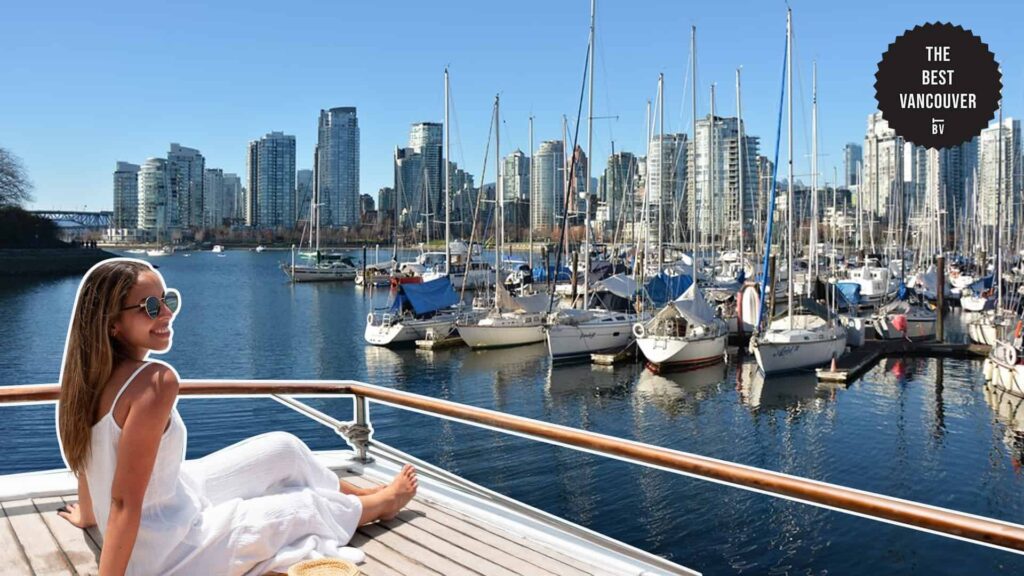
Address: 1015 Ironwork Passage, Vancouver, BC V6H 3R4, Canada
Phone: +1 604-733-3512
Spruce Harbour Marina is located on the south shore of False Creek, east of Granville Island. It’s run by the Greater Vancouver Floating Home Co-op, where members buy a CAD 50,000 share and become part of a community that’s currently at 55 families.
Members get access to free laundry, event space, and a direct connection to the city sanitation line, so they get to enjoy the closeness to water without leaving all the perks of living on land.
Because of its popularity, though, there’s currently a 10-year waiting list for membership. If you’re eager to join, keep an eye out for opportunities to buy a boat from an outgoing member.
Heather Civic Marina
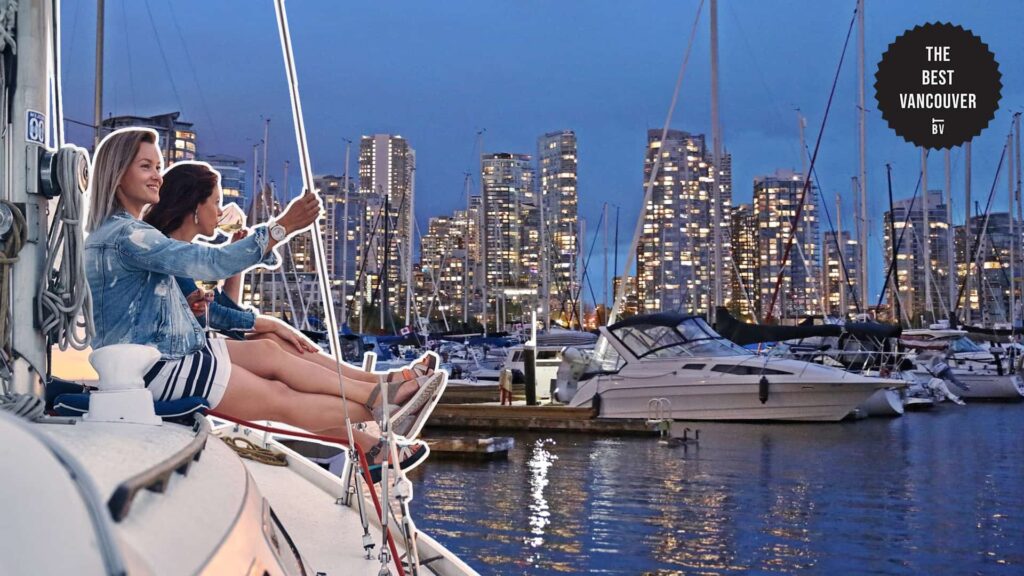
Address: 600 Stamps Landing, Vancouver, BC V5Z 3Z1, Canada
Phone: +1 604-874-2814
Heather Civic Marina is another prime spot for houseboat living on the south side of False Creek.
Operated by the city, Heather Civic Marina charges reasonable fees based on boat size, starting at CAD 1,841 for vessels up to 26 feet in length and capping at CAD 2,608 for boats longer than 38 feet.
Moorage fees of CAD 15.90 per foot per month and metered electricity usage add to the convenience of living on the water. But be sure to pay up to avoid vessel towing and a fine of at least CAD 250.
You have to be patient if you’re looking to live in this marina, as they’re also not accepting applications at this time.
Where are floating homes in Vancouver?
There may be a couple of floating homes in Coal Harbour, according to Floating Home Association of BC, but officially, the Coal Harbour Marina only allows moorage for recreational use.
On top of this, the province of BC is currently not accepting applications for floating home communities. All we have that’s stable and easy to locate is the Sea Village.
Sea Village Marina
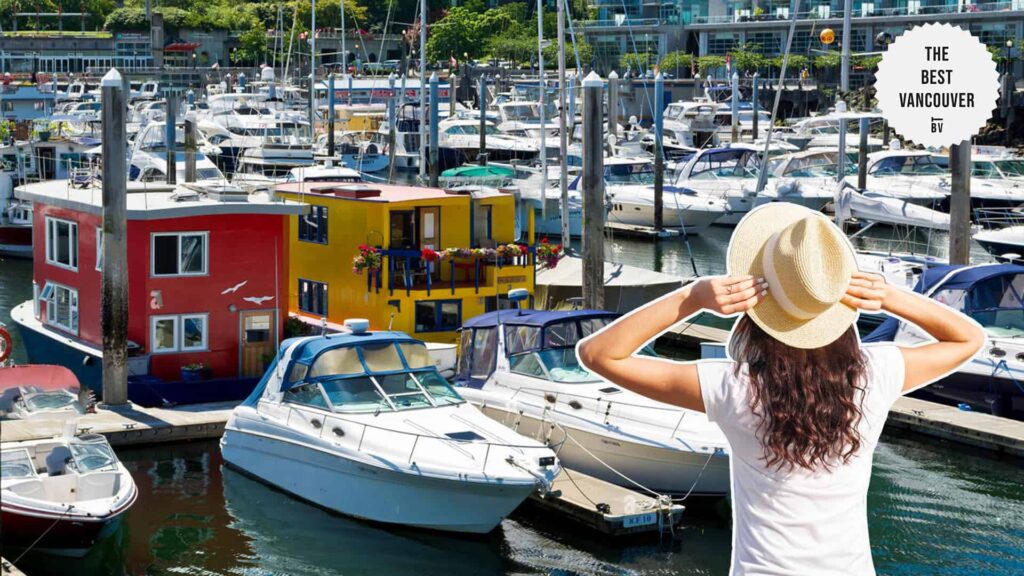
Address: 1301 Johnston St, Vancouver, BC V6H 3R8, Canada
Phone: +1 604-765-1451
Tucked away in the scenic Granville Island, Sea Village Marina is a delightful community comprising 13 floating homes, some of which were relocated from Coal Harbour.
These picturesque and colorful abodes boast unique designs that were meticulously crafted, some over the course of several years, before arriving via towboats and being set up in this community.
A few homes are occasionally available for short-term rentals. But resales are exceedingly rare, making this charming waterside haven a sought-after and tightly-knit community since its establishment in 1979.
Today, Sea Village Marina is one of Granville Island’s interesting attractions.
Pros and Cons of the Floating Home Lifestyle

Living on a floating home or a houseboat can be an enriching experience as occupants embrace a simple, eco-friendly, but adventurous lifestyle. However, it also poses some practical challenges.
For starters, it’s like having a never-ending vacation by the waterfront. You can savor peaceful sunsets and take life at a relaxed pace, or if you have a houseboat, move to new spots whenever you please.
In Vancouver and in the bigger province of BC, there are floating home communities that are just amazing. Your neighbors become great resources, just like the bigger online communities from around the world.
Additionally, this lifestyle can help you appreciate the marine environment and encourage you to reduce your carbon footprint. With limited space and weight allowances, you also become intentional with what you bring onboard.
On top of these, your monthly fees for a home on the water are way cheaper compared with the average rent price in Vancouver (around CAD 3301 in June 2023), For some, it might even be a solution to the city’s high housing costs.
However, it’s not all smooth sailing.
Living on the water comes with challenges, and maintenance is a significant one. By choosing this lifestyle, you’re exposing your home to the elements, which can lead to wear and tear and the need for regular upkeep.
There’s also the weather. Floating homes are directly impacted by strong winds, storms, and tides, which call for constant vigilance.
The financial aspect is also important to consider. Owning a floating home or houseboat involves substantial upfront costs (including purchase of the vessel or construction of home, permits, mooring fees and utilities).
Looking into the future, you’ll realize that it’s less liquid compared to traditional homes. There’s a smaller niche of individuals who’d be interested in a resale.
And another point to keep in mind – there have been efforts from the city to uproot some liveaboards, because of some environmental threats and visual pollution to the marinas.
All things considered, if you’re planning to embrace this lifestyle, you have to prepare well and observe regulations in order to enjoy its astounding benefits.
Tips for Living in a Floating Home and Houseboat
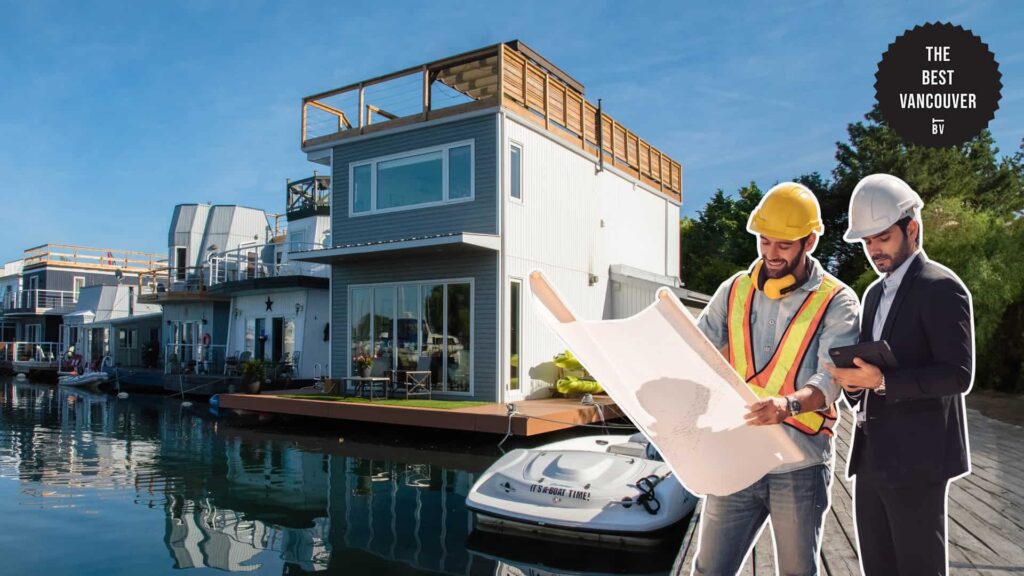
- Be ready to involve more professionals in your transactions. When it comes to living on the water, being well-versed in the regulations of the province, city, and your chosen marina is crucial.
But let’s be honest – navigating all the technicalities can get overwhelming. At some point, you’ll need to trust lawyers, architects, and inspectors to ensure that everything is compliant with the rules.
After all, having a home on the water is a whole different experience from having a traditional one on land. You don’t want technicalities to complicate it even more.
- Ensure the safety of your home. If you’re planning to live in a floating home, you need to make sure that you meet the BC Float Home Standard. Among others, you need to:
- Provide the local government with proof that the floating home has been used as a dwelling unit before the standard was adopted
- Make sure that the floatation system or device is able to support the weight of the home and its occupants (get a certification from an engineer)
- Ensure that the part of the floating home above the water is also certified to withstand wind, waves, and the like
- Prove that your electrical, plumbing, waste management, and fire protection systems are all working and in good condition
- Be creative with storage. Maximize your limited space by utilizing efficient storage solutions, vertical space, and multi-functional furniture.
Just make sure that you’re also considering accessibility, safety hazards, and weight distribution when choosing storage solutions.
- Consider daily chores. Living on the water comes with unique daily chores, like getting groceries, that may require a dinghy for short trips to shore or utilizing waterways to travel instead of walking to a parking lot.







